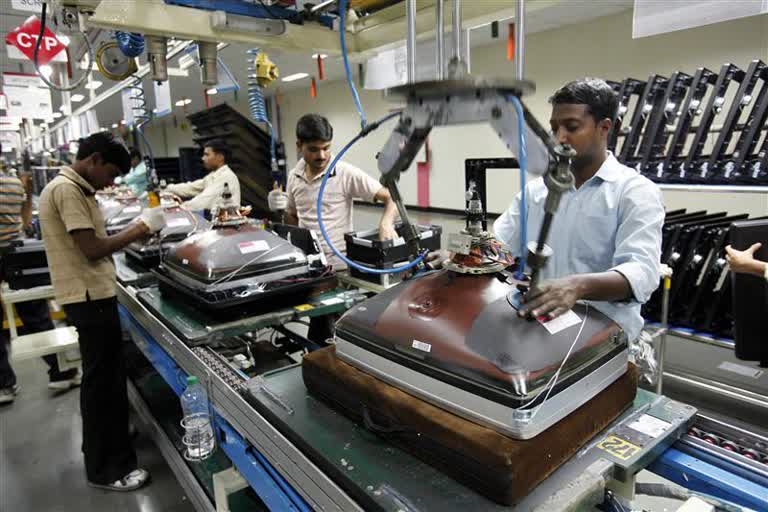Hyderabad: In a bid to formalise and reform the labour sector in India, the Union Ministry of Labour and Employment last week notified the draft rules under the Occupational Safety, Health and Working Conditions Code 2020 (OSH Code 2020).
Though the draft rules aim at enhancing safety, health and working conditions of employees, while also simplifying the procedures and protocols for establishments, certain proposals have invited adverse feedback from the Opposition parties and other stakeholders.
Here’s a detailed look at the key proposals under the OSH Code and the reasons for which they are being criticised:
First, on whom will these draft rules apply?
The new code and the rules proposed are related to the safety, health and working conditions of the Dock Workers, Building or other construction workers, Mines workers, Inter-State Migrant worker, Contract labour, Working journalist, Audio-visual workers and Sales promotion employees.
What do the draft rules propose?
Here are the salient features of the draft rules:
-- It is mandatory for establishments to offer an appointment letter to every employee in a prescribed format including designation, category of skill, wages, avenue for achieving higher wages/higher position etc. This needs to be enforced within three months of coming into force of the rules.
So, as per new rules, no employee shall be employed in any establishment unless he has been issued a letter of appointment.
-- Annual health examination has to be conducted by the employer free of cost for every worker of factory, dock, mine and building or other construction work, who has completed 45 years of age.
-- For the ease of doing business, the draft rules have also made a provision for single electronic registration, licence and annual integrated return for an establishment.
Read more: Hopefully DCGI will give EUA for Oxford's vaccine immediately after MHRA nod: Mazumdar-Shaw
-- The draft rules also propose a national licensing system for contract hiring. The code says, “An all-India single license for contractor supplying or engaging contract labour in more than one state for five years has been provided as against work order-based licensing at present.”
-- Safety committees have been made mandatory for every establishment employing 500 or more workers to provide an opportunity for the workers to represent their concern on occupational safety and health matters.
-- The rules have been made regarding conditions relating to safety of women employment in all establishment for all type of work before 6 am and beyond 7 pm with their consent.
-- According to draft rules, in calculating overtime on any day, a fraction of an hour between 15 to 30 minutes shall be counted as 30 minutes, at present less than 30 minutes is counted as no overtime.
What are the key contentions?
Long working hours: The current draft has a provision to increase the duration of the working shift from 8-9 hours to up to 12 hours. However, the weekly threshold of 48 hours of total working hours remains the same, with any extra work hours beyond to be considered as overtime.
The Congress Party has said that the 12-hour shift for factory workers will have a detrimental effect on their health and family life and will also render one-third or more than approximately 40.65 lakh workers jobless.
Missing database for migrant workers: The Congress Party criticised the draft for being silent on the database of inter-state migrants that was in focus earlier when the government said in the Parliament that there is no data in public domain regarding the same.
Health check-ups and safety provisions not for all: Opposition parties and experts questioned why healthcare check-up provisions have been restricted for workers of above 45 years of age only. This may prompt employers to hire younger workers and reduce opportunities for the elder ones.
Also, considering the fact that the safety committees have been made mandatory only for establishments employing 500 or more workers, economists are raising concerns on safety of those who are working in companies with less than 500 workers, which accounts for a significant chunk of the industry.



